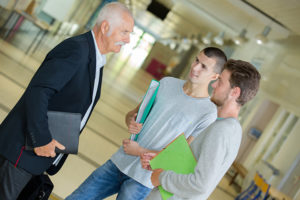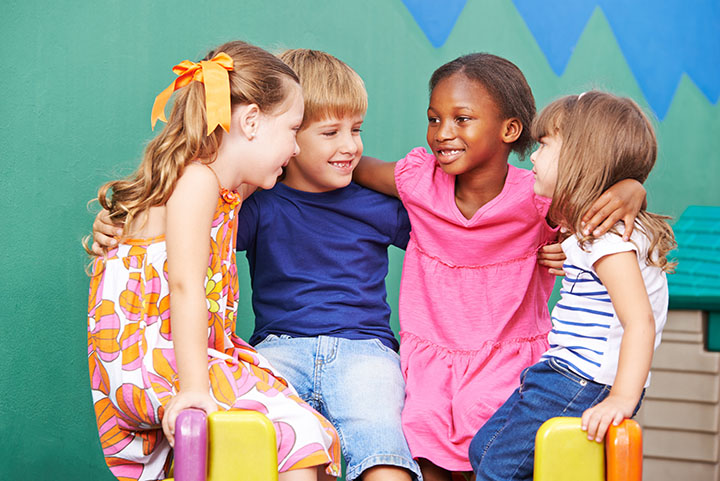Pre-kindergarteners at a Queens, NY, elementary school are learning as much about academics as they are about themselves with a new curriculum that encourages students to focus on managing their emotions.


Pre-kindergarteners at a Queens, NY, elementary school are learning as much about academics as they are about themselves with a new curriculum that encourages students to focus on managing their emotions.
Teachers at P.S. 212 in Jackson Heights work with many new immigrant students, principal Carin Ellis told The New York Times, and a new Kindness Curriculum introduced this year promotes mindfulness and builds social and emotional skills they need to persevere in academics.
“A child can come in and say, ‘My father was deported last night.’ How do you deal with that?” said Carin Ellis. “We give them tools to cope with their hurt and pain.”
The principal expects youngsters will also learn to better manage the stress of standardized tests and mitigate interpersonal conflicts.
The Kindness Curriculum uses breathing exercises, sensory games, songs, and stories to help students focus on their emotions and process their feelings, led by teachers like Danielle Mahoney-Kertes at P.S. 212.
“Our world is kind of a scary place,” she told The Times. “We can’t always control what is happening outside us. But what we’re teaching them is that they can control how they respond.”
Teachers at P.S. 212 are among 15,000 educators, parents, and others who signed up for the Kindness Curriculum since August, when it was introduced by the University of Wisconsin, Madison. The popularity of the curriculum stems from a broader, growing global movement to incorporate social and emotional learning in schools.
Research by psychologist Lisa Flook suggests students who learn about kindness are more willing to share, focus better, and show modest academic gains. The reason, she told The Times, is students who are struggling with anxiety, fear, or anger can’t focus on their work.
“Children who have positive relationships with their peers and teachers do better in school,” she said.
The University of Wisconsin team led by Richard Davidson, founder of the school’s Center for Healthy Minds, worked with the producers of “Sesame Street.” Davidson said the Dalai Lama inspired him to remove the religious context around contemplative practice to develop strategies that help people, and he pointed out that ages 4 to 7 is optimal for helping students learn lifelong psychological habits.
Rosemarie Truglio told The Times that the main objective was to guide children “to identify their feelings and to put a label on them.”
When children understand their own emotions, she said, they’re better able to empathize with others and offer help. A key to that is to introduce students to the concept of kindness and “to define it not so much in words as through behaviors,” she said.
The emphasis on both words and actions means educators at P.S. 212 and elsewhere are modeling kindness and helping students practice kind words and actions on a regular basis. The overarching goal is not merely to improve academics, but to form good children.
How schools form good children, wise leaders, and virtuous citizens is the animating question of a research study at the Institute for Advanced Studies in Culture at the University of Virginia that involved observations in classrooms, cafeterias, drama clubs, and athletic programs.
The study’s primary investigator, sociologist James Davison Hunter, echoes Davidson’s emphasis on the critical developmental period between the ages of 4 and 7 to help students form strong character.
“(W)e must acquire a moral sensibility—we learn what is right and wrong, good and bad, what is to be taken seriously, ignored, or rejected as abhorrent—and we learn, in moments of uncertainty, how to apply our moral imagination to different circumstances,” Hunter wrote in The Death of Character. “Over time, we acquire a sense of obligation and the discipline to follow them.”
The University of Wisconsin offers the Kindness Curriculum for preschoolers for free to interested educators.